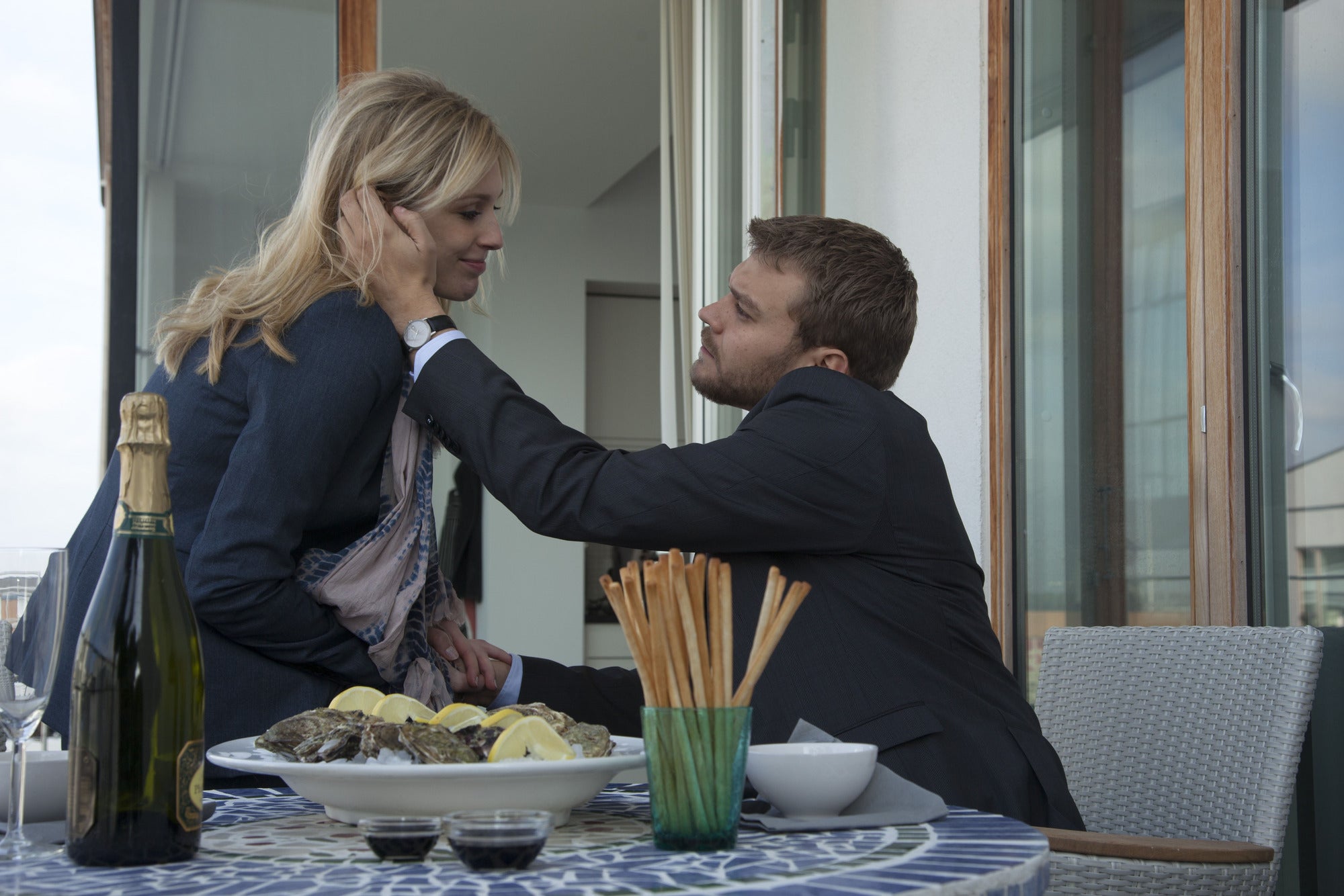TV review: Borgen, 89,000 Children
Tom Leece is Film and TV editor at Fourth & Main

Your support helps us to tell the story
From reproductive rights to climate change to Big Tech, The Independent is on the ground when the story is developing. Whether it's investigating the financials of Elon Musk's pro-Trump PAC or producing our latest documentary, 'The A Word', which shines a light on the American women fighting for reproductive rights, we know how important it is to parse out the facts from the messaging.
At such a critical moment in US history, we need reporters on the ground. Your donation allows us to keep sending journalists to speak to both sides of the story.
The Independent is trusted by Americans across the entire political spectrum. And unlike many other quality news outlets, we choose not to lock Americans out of our reporting and analysis with paywalls. We believe quality journalism should be available to everyone, paid for by those who can afford it.
Your support makes all the difference.The political drama that Peep Show’s Mark recently undersold as "like The Killing, but more bureaucratic" kicks off its second season with the thorny issue of Denmark's involvement in Afghanistan. It has been 11 months since Prime Minister Birgitte Nyborg (Sidse Babett Knudsen) cemented her hold on power as the embers of her marriage burnt out. Her coalition partners have stayed in line, spin doctor Kasper (Pilou Asbæk) is apparently in a stable relationship, and new secretary Jytte has that no-nonsense approach to admin that predecessor Sanne tragically lacked.
During a visit to Helmand Province to congratulate the troops prior to withdrawal, Birgitte and Kasper run into Katrine Fønsmark (Birgitte Hjort Sørensen), now a journalist for the tabloid newspaper Ekspres. A Taliban attack and a rapid return to Denmark to weigh up the country’s military commitments make for a solemn episode of Borgen, pitching Birgitte into political crisis and Katrine into a moral quandary as her attempts to pen a respectful article are hampered by editorial demands.
It’s a straight-laced treatment of the conflict compared to The Killing’s nervy war crime plot. But there’s something refreshing about Borgen’s unwillingness to seek out any more controversy than that already at hand. The pairing of the ever-compromising Birgitte and the idealistic Katrine in a subplot involving bereaved father Jørgen Hedegård (Olaf Johannesen) is the episode’s anguished heart, turning the war into more than just the programme’s latest hot topic.
It is, however, a helpful thematic parallel. “I’m at war at the office. I’m at war at home,” Birgitte laments. Estranged husband Phillip (Mikael Birkkjær) is after the divorce papers, and it is here that we get a rare glimpse of a Birgitte on the edge of a personal meltdown. The question is whether the break-up’s aftermath can bring the same levels of drama that its prelude did in the first season. Whatever the case, Birgitte’s is not the only facade in danger of cracking; Kasper, still lying about his past and swigging more Danish plonk than he should, drops a clanging Freudian slip in front of new girlfriend Lotte (Rikke Lylloff).
If Katrine’s burdens seem lighter in comparison, time will tell whether she’s erred in exchanging TV1’s spineless editor for Ekspres’ Michael Laugesen (Peter Mygind), who possesses more backbone than a brontosaurus and about as much humanity. Laugesen, the closest thing Borgen has to an out-and-out villain, may well prove a match for Katrine’s dogged righteousness. If the first season explored Birgitte’s moral decline, the second could chart that of its last idealist. You just never know how noir these Nordic noirs are going to go.
Changes in Katrine’s professional life aside, Borgen’s writers have steered clear of major changes. It’s still the winning formula of intelligent political drama, swift pacing and nuanced characters, and open enough for new viewers to join straight in. Its greatest if perhaps accidental success is to present Denmark as a surrogate for Britain’s own socio-political muddles. The coalition-based compromises, spin doctors, half-truths, broken promises and battered idealism are just as relevant here as the take on the war in Afghanistan. But a home-grown approach to these problems would be too close to the bone – just look how much of an uncomfortably damning indictment The Thick of It became. Watching the Danes hash it out in our stead is something of a relief.
Best scene:
Any occasion Birgitte shows off her melodious English usually takes the prize but here it has to be her encounter with grieving father Jørgen Hedegård. If aficionados of Scandinavian drama ever wanted to know what happened to The Killing’s Prime Minister Kristian Kamper, it appears he crossed over into a parallel universe and became a car salesman.
Best line:
“Go home, and stop trying to manipulate the free press.” (Katrine, to Kasper). Never in the history of romance has the presumably inevitable union of two star-cross’d lovers been preceded by so many stinging remarks.
Handy Danish vocab:
Along with the essentials – “tak”, “mor” and “far” – budding linguists may have added “krig” (“war”) to their Danish phrasebook.

Watch Apple TV+ free for 7 days
New subscribers only. £8.99/mo. after free trial. Plan auto-renews until cancelled

Watch Apple TV+ free for 7 days
New subscribers only. £8.99/mo. after free trial. Plan auto-renews until cancelled
Magnus Watch:
In which we review the activities of Birgitte’s youngest child. It was only a matter of time before the statsminister’s curly-topped cherub (Emil Poulsen) was going to alleviate his abandonment issues with takeaway meals and a computer screen tan, but it still hurt.
Join our commenting forum
Join thought-provoking conversations, follow other Independent readers and see their replies
Comments